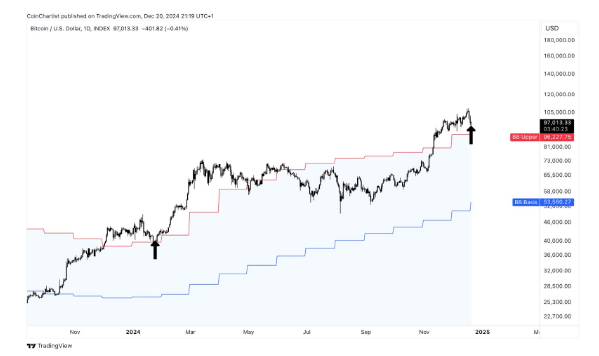Key Points
- Scam-related complaints increased 46 per cent in the past financial year according to the Australian Financial Complaints Authority.
- The authority handled over 6,000 complaints.
- Consumer finance complaints rose 34 per cent in 12 months to its highest ever level of 97,000 complaints.
Scam-related complaints increased 46 per cent in the past financial year according to the Australian Financial Complaints Authority, which handled over 6,000 cases.
The authority’s chief ombudsman David Locke said scam complaints had contributed greatly to the massive rise in consumer finance complaints, which rose 34 per cent in 12 months to its highest-ever level of 97,000 complaints.
“We witness first-hand the human cost of this serious and sophisticated financial crime,” Locke said.
“It’s pleasing to see initiatives by individual banks to combat scams but we would welcome a more consistent approach across the sector.”
Locke said the government’s proposal for codes of practice addressing scams, is a good one.
“AFCA believes there is a need for enforceable standards, to lift the bar on scam prevention and remediation. This will also aid the work we do as an ombudsman service.”
Meanwhile, the National Anti-Scam Centre has detected a sharp rise in loyalty program scams following 209 reports to Scamwatch during the past four months.
Customers are being urged to remain vigilant about text messages or emails from large and well-known companies saying their loyalty points are expiring.
The Australian Competition and Consumer Commission (ACCC), which oversees the centre, says these texts or emails include links to a fake website which prompts customers to log in and provide credit card details to use the points.
Scammers will then steal customers’ points, along with login details and personal information which they can use on other platforms to commit identity fraud.
The vast majority of Scamwatch reports have related to Qantas Frequent Flyer, Telstra and Coles loyalty programs.
Here’s what you need to know about avoiding falling victim to scams.
How to avoid investment scams
According to the ACCC investment scams accounted for the most financial losses last year and fleeced Australians of over $1.5 billion.
AFCA chief operating officer Justin Untersteiner says this is where a consumer is tricked into making payment, “normally into a crypto exchange of some sort, into a website that has been made by the scammer that looks like a legitimate investment website.”
He said complaints about this type of scam are well and truly on the rise, and long-term increases in scams are trending in a “terrible direction”.
Cassandra Cross is an associate professor of justice at Queensland University of Technology and scam researcher.
She told SBS News bitcoin and other cryptocurrencies are attractive to people because of a “novelty factor”, and that contributes to why they get scammed.
“There has been a lot of hype about Bitcoin and stories of people investing and making a lot of money. That may or may not be true, but people certainly have heard about it and would like it to be them.”
“There’s also just the ignorance and uncertainty people have around crypto. Not necessarily knowing a lot about it certainly works in favour of the offender.”
Romance scams are on the rise
Another scam that can be deeply traumatising is on the rise, Cross says – ‘romance scams’.
Scammers are “using the traditional approach of trying to establish a relationship with somebody to defraud them to get money out of them”.
Their new tactic is to ask the victim to invest in bitcoin or cryptocurrencies, where they would have previously just asked for a direct transfer, she said.
“It’s presented as an opportunity to invest in the relationship and its future, and it also subverts a lot of our current prevention messaging.
“If you’re being asked in a relationship to invest in something, then the red flags don’t necessarily go up because you think it is, again, a genuine investment opportunity.”
She said typical anti-scam messaging, such as “don’t send money to people you haven’t met or don’t know”, doesn’t work in this case.
Watch out for unsolicited text messages
A common tactic of scammers is to send text messages impersonating a bank or the Australian Tax Office telling you there’s a problem with your account and you need to transfer money.
“It doesn’t matter how legitimate the text message looks – don’t click on it,” Untersteiner said.
“Sometimes calling it a scam downplays what we’re talking about. We’re actually talking about pervasive financial crime that is run by organised financial crime gangs, that have businesses set up to trick you.”
Scammers can send very legitimate-looking texts and voice messages, he said, but AFCA recommends contacting your financial institution directly and never responding to text messages or handing out personal details.
How to get help if you’re a scam victim
Untersteiner said there’s “huge under-reporting” of scams in Australia and agencies believe the issue spreads wider than there is evidence of.
“There’s often people who are quite ashamed and they tell me that they haven’t told their friends, they haven’t told their family, they haven’t taken action, because they’re just so embarrassed.”
He said the first step is to immediately contact your bank, who may be able to stop a payment.
The next step would be to contact AFCA and the ACCC.
More than $86 million was set aside in the recent federal budget to create a National Anti-Scams Centre.
The centre launched in early July. It is being run by the ACCC, and will partner with government agencies, banks, telco companies and online platforms to stop scams from taking place.













































